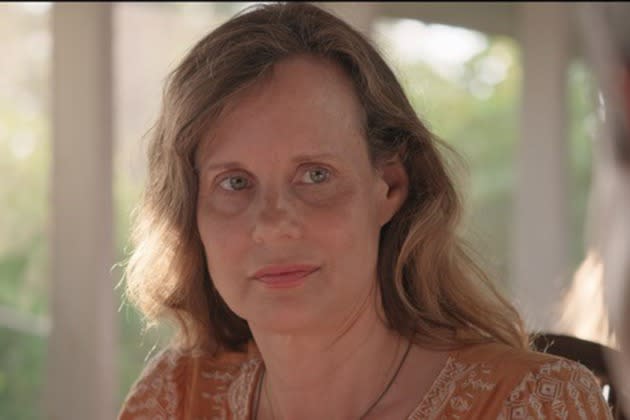‘Rachel Hendrix’ Review: Director Victor Nuñez Makes Welcome Return With Poignant Drama
- Oops!Something went wrong.Please try again later.
- Oops!Something went wrong.Please try again later.
- Oops!Something went wrong.Please try again later.
- Oops!Something went wrong.Please try again later.
- Oops!Something went wrong.Please try again later.

When he made his first feature, Gal Young ‘Un, in 1979, director Victor Nuñez was a pioneer in an American independent film movement still in its early stages. Over the next several decades, Nuñez continued to work on personal projects on his home turf of northern Florida. He worked rewardingly with gifted actors like Ed Harris in A Flash of Green and launched Ashley Judd’s acting career with Ruby in Paradise in 1993. Peter Fonda earned his only Oscar nomination as an actor when he starred in Nuñez’s Ulee’s Gold in 1997.
But Nuñez has not directed a film in over a decade. He returns to the screen with Rachel Hendrix and helps to revitalize the acting career of Lori Singer, still best known for her starring role opposite Kevin Bacon in 1984’s Footloose. Singer, also an accomplished classical musician, had a few other notable acting credits, in Alan Rudolph’s Trouble in Mind and Robert Altman’s Short Cuts, but she has been absent from the screen for a long time. Singer and Nuñez team up rewardingly in an affecting if imperfect domestic drama, which received its world premiere at this year’s Santa Barbara International Film Festival.
More from The Hollywood Reporter
After the first screening at the festival, filmmaker Todd Field conducted the Q&A. People who know Field as the writer-director of this year’s Oscar contender Tar may not recall that he toiled for many years as an actor and in fact co-starred with Judd in Ruby in Paradise 30 years ago. Field paid tribute to Nuñez’s sensitivity and generosity in their conversation after the new film.
Singer plays the title character, a novelist and professor of creative writing at a Florida university, who is still reeling from the sudden death of her husband a year earlier. Besides exploring the impact of grief, the film is one of the few to touch on the impact of COVID on many people’s lives. Some of Rachel’s classes are still conducted via Zoom. Her life has been upended in other ways by the pandemic. Although she has contact with her daughter, who lives nearby, she has not seen her California-based son in two years; their only communication is by phone or laptop.
At the start of the film, Rachel returns to the beach house that she has not visited for a long time. It is here that she makes her first rewarding new contact since her husband’s death. A neighbor who has been looking after the house has a teenage daughter, Ann (Kim Sandwich), who agrees to do some cleaning for Rachel. That job does not work out well, but it turns out that Ann has read Rachel’s acclaimed first novel and is an aspiring writer herself. The burgeoning relationship between Rachel and this gifted but damaged young woman allows Rachel to enjoy the mentoring role that she had less opportunity to play with her regular students during shutdowns.
As in several of his earlier films, Nuñez makes excellent use of the Florida locations. The seaside home and Rachel’s in-town residence in Tallahassee both come alive as lived-in presences. Cinematography by William Tanner Sampson is never showy but always astutely revealing. Casting is also first-rate, with a string of vivid performances by actors who are not household names but who all meet the demands of their roles.
Of course the movie depends primarily on the performance of Singer, who is onscreen almost constantly and conveys as much in silence as she does in her confrontations with young Ann or her daughter (Kersti Bryan), who is having problems that Rachel is not quite capable of handling. Singer holds the camera effortlessly even in scenes of silent melancholy. There is not a false note or wasted movement in this full-blooded portrayal.
The one failing of the film, shared with some of Nuñez’s earlier movies, is that it sometimes seems padded and overindulgent, as if the director could not bear to cut away from scenes that become slightly repetitive. As the movie heads toward its subdued but uplifting conclusion, it seems about to end a few times before it actually does. A two-hour running time is a trifle long for a modest character piece, and although we appreciate the artistry of both actress and director, a shade more ruthlessness in the editing would have given this touching drama of regret and renewal an even stronger impact. But viewers will not forget the sadness and wisdom of Singer’s Rachel Hendrix.

